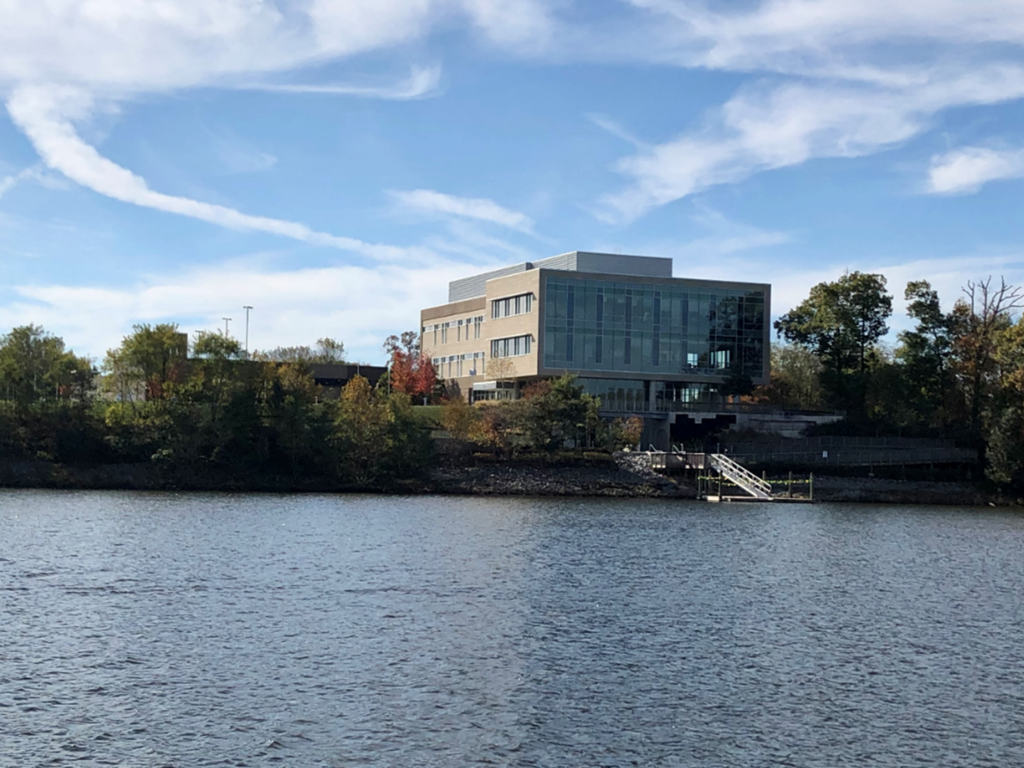“Our goal is to enable multiple robots to work as a team to perform complex real-world tasks. By designing theories and algorithms to control teams of robots, we envision autonomous agents to help human workers in many applications including agriculture, environmental monitoring, security, or disaster response."
Robotics, Mechatronics, and Control
Robotics, mechatronics, and control engineering research at Mason delves into next-generation medical devices, autonomous air and water vehicles, and the use of robotics in shepherding manufacturing and supply chain solutions of the future.
Featured faculty conducting research in robotics, mechatronics, and control include:
- Missy Cummings is the director of the new Mason Autonomy and Robotics Center (MARC), where faculty, students, and research staff are engaged in cutting-edge multi-disciplinary research and education efforts in basic and translational autonomous systems research. Her research looks at the intersection of humans and technology with embedded AI. Autonomous systems today, and even more so in the future, require coordination and teamwork for mutual support between humans and machines for improved system safety and performance.
- Pilgyu Kang runs the Micro/Nano Mechanics and Photonics with Nanomaterials Laboratory where he conducts fundamental research on micro/nanoscale mechanics and photonics with nanomaterials for innovations in nanobiosensors. Researchers explore broad fields including nanophotonics, optofluidic, optoelectronics, and plasmonics to create innovations in advanced materials and manufacturing for high-performance, low-cost sensor devices. The research aims to develop advanced, high-performance materials with new functionalities in mechanical, optical, and electrical properties.
- Leigh McCue runs the Vessel Dynamics Laboratory which capitalizes on George Mason University’s unique waterfront facility at the Potomac Science Center. The research team’s focus is on computational and experimental studies to better understand the dynamics and hydrodynamics of manned and unmanned vessels.
- Quentin Sanders Enabling Mobility through Patient Oriented Wearables and Robotics (EMPOWER) Laboratory develops robotic and prosthetic devices for individuals who have experienced a neurological injury or amputation. Researchers in the lab seeks to use these robotic and prosthetic devices to 1.) evaluate and assess sensorimotor control, 2.) retrain sensorimotor function, and 3.) assist with the execution of daily activities of living. We also explore the design of novel soft actuation strategies for exoskeleton and prosthetic devices.

Vessel Dynamics Laboratory located at George Mason University's Potomac Science Center with a unique waterfront facility.
- Quentin Sanders runs the intelligent assistive technology, neuromuscular control and physiology, Wearables, and Rehabilitation Robotics Laboratory or the ImPoWeR Lab. Research in the ImPoWeR lab focuses on developing robotic and prosthetic devices to enhance the quality of life of individuals who have experienced a neurological injury or amputation.
- Daigo Shishika works in the general area of autonomy, dynamics and controls, and robotics. His work has focused on multi-agent systems including animal groups and swarms of autonomous vehicles. Learn more at his research group website.
- Phillip M. Cunio leverages prior experience in government and industry to develop and deploy new concepts supporting more efficient and more effective utilization in the trillion-dollar space economy. He produces advanced models for use in space traffic management and orbital debris removal/in-situ resource recovery, alongside prototype development for sensors and mobility systems. He is also a member of the GMU Landolt mission team, working with teammates from the College of Science, College of Engineering and Computing, and partner institutions across North America to place a payload of NIST-calibrated laser beacons in geosynchronous orbit, allowing more precise calibration of star catalogues and better understanding of how ground telescopes perceive bright objects in the sky, with the ultimate goal of addressing multiple open challenges in astrophysics, including the speed and acceleration of the universe expansion.
